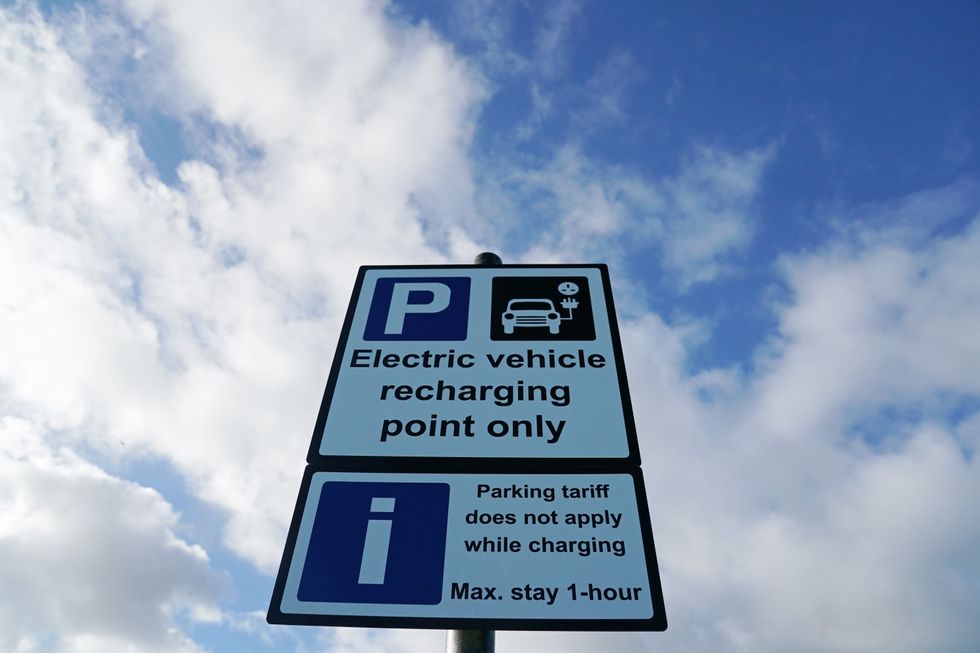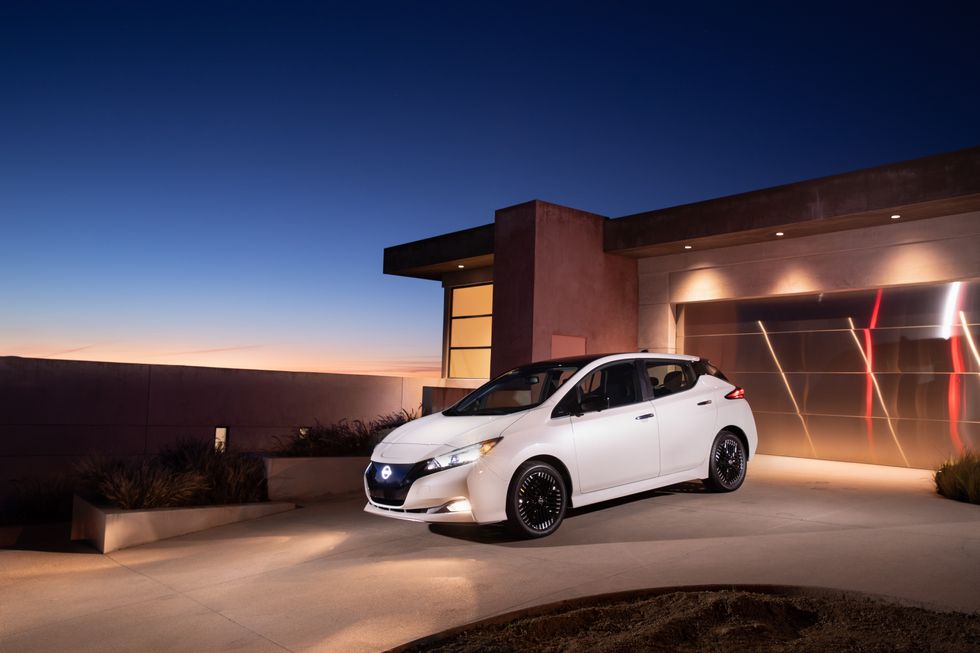Hemma Visavadia
Guest Reporter
The new Labour Government has indicated willingness to be flexible with electric vehicle sales targets, following warnings from manufacturers about potential job losses and market challenges.
While insisting the Government will not weaken its overall EV mandate, Transport Secretary Louise Haigh said ministers could create new flexibilities to help car makers achieve their goals.
The announcement comes ahead of crucial meetings this week between senior Government ministers and automotive manufacturers, including Nissan, who are set to warn that the UK car industry has "reached a crisis point".
Nissan are currently one of the largest car manufacturers operating in the UK and has already invested over £2billion into its electric car plant based in Sunderland.
Do you have a story you'd like to share? Get in touch by emailing [email protected]

But due to the harsh penalties surrounding failed EV targets, many manufacturers have warned they are likely to struggle with the industry left in “serious danger”.
In a bid to combat this Haigh told LBC Radio: "We are absolutely in listening mode” but “we are not diluting our ambition."
Under current rules, car manufacturers must have at least 22 per cent of their new vehicle sales electric by this year, with the target rising to 28 per cent in 2025.
Companies failing to meet these targets face punitive fines of £15,000 per vehicle. The mandate becomes progressively stricter each year, leading up to 2035 when all new car sales must be electric.
The rules also apply to vans, with manufacturers required to ensure 10 per cent of van sales are electric this year.
Labour has stated in its manifesto it would bring forward the complete ban on new petrol and diesel car sales to 2030, reinstating the previous target. Industry figures show electric vehicles currently make up just 18 per cent of new car sales in the UK.
Major manufacturers have resorted to writing to Chancellor Rachel Reeves warning that EV market share is "barely moving" and expressing serious concerns about meeting the targets. Car makers face having to either buy credits from competitors or pay hefty compliance payments if they miss the targets.
Now Labour Ministers are considering several options to help manufacturers meet their targets while maintaining environmental goals. One proposal would allow companies to count British-made cars sold abroad towards their EV sales targets.
Another suggestion involves equalising the percentage differential between cars and vans in the targets.
Jaguar Land Rover has proposed giving credit towards sales targets if manufacturers can demonstrate reduced carbon emissions in their factories. The Department for Transport has not ruled out any of these options, with officials saying it is "too early to be prescriptive on the details."
Haigh emphasised the Government's collaborative approach, telling LBC: "There are flexibilities in the current mandate, but we want to work with the manufacturing sector about whether these are working and whether we can address them."
A Nissan spokesperson told the BBC the company remains "committed to playing a full role in the transition to net zero in the UK" but said "changes are required now to reflect the reality of the market."
Stellantis, which owns several major car brands, warned that it was "strategically reviewing" its UK operations while working with union partners.
LATEST DEVELOPMENTS:

Car manufacturers have warned that electric vehicles remain "stubbornly more expensive" and consumers are wary of investing. The industry has argued that assumptions about growth and battery technology have proved flawed, with the market not moving as quickly as anticipated.
These market conditions have led to mounting pressure on manufacturers to balance environmental targets with economic realities.
Find Out More...
While insisting the Government will not weaken its overall EV mandate, Transport Secretary Louise Haigh said ministers could create new flexibilities to help car makers achieve their goals.
The announcement comes ahead of crucial meetings this week between senior Government ministers and automotive manufacturers, including Nissan, who are set to warn that the UK car industry has "reached a crisis point".
Nissan are currently one of the largest car manufacturers operating in the UK and has already invested over £2billion into its electric car plant based in Sunderland.
Do you have a story you'd like to share? Get in touch by emailing [email protected]

But due to the harsh penalties surrounding failed EV targets, many manufacturers have warned they are likely to struggle with the industry left in “serious danger”.
In a bid to combat this Haigh told LBC Radio: "We are absolutely in listening mode” but “we are not diluting our ambition."
Under current rules, car manufacturers must have at least 22 per cent of their new vehicle sales electric by this year, with the target rising to 28 per cent in 2025.
Companies failing to meet these targets face punitive fines of £15,000 per vehicle. The mandate becomes progressively stricter each year, leading up to 2035 when all new car sales must be electric.
The rules also apply to vans, with manufacturers required to ensure 10 per cent of van sales are electric this year.
Labour has stated in its manifesto it would bring forward the complete ban on new petrol and diesel car sales to 2030, reinstating the previous target. Industry figures show electric vehicles currently make up just 18 per cent of new car sales in the UK.
Major manufacturers have resorted to writing to Chancellor Rachel Reeves warning that EV market share is "barely moving" and expressing serious concerns about meeting the targets. Car makers face having to either buy credits from competitors or pay hefty compliance payments if they miss the targets.
Now Labour Ministers are considering several options to help manufacturers meet their targets while maintaining environmental goals. One proposal would allow companies to count British-made cars sold abroad towards their EV sales targets.
Another suggestion involves equalising the percentage differential between cars and vans in the targets.
Jaguar Land Rover has proposed giving credit towards sales targets if manufacturers can demonstrate reduced carbon emissions in their factories. The Department for Transport has not ruled out any of these options, with officials saying it is "too early to be prescriptive on the details."
Haigh emphasised the Government's collaborative approach, telling LBC: "There are flexibilities in the current mandate, but we want to work with the manufacturing sector about whether these are working and whether we can address them."
A Nissan spokesperson told the BBC the company remains "committed to playing a full role in the transition to net zero in the UK" but said "changes are required now to reflect the reality of the market."
Stellantis, which owns several major car brands, warned that it was "strategically reviewing" its UK operations while working with union partners.
LATEST DEVELOPMENTS:
- Millions of motorists risk headlight issues amid calls for driving law changes to protect older Britons
- Labour could 'back off' from car makers amid calls to introduce more electric vehicle taxes
- Elderly drivers risk brutal £1,000 fine for failing to disclose medical conditions to DVLA

Car manufacturers have warned that electric vehicles remain "stubbornly more expensive" and consumers are wary of investing. The industry has argued that assumptions about growth and battery technology have proved flawed, with the market not moving as quickly as anticipated.
These market conditions have led to mounting pressure on manufacturers to balance environmental targets with economic realities.
Find Out More...